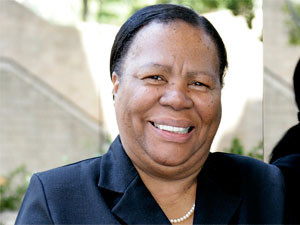
In what is becoming an increasingly collaborative approach to government's science initiative, the Department of Science and Technology (DST) has announced a new agreement to collaborate with Russia for projects as well as new research.
The DST, says Naledi Pandor, SA's science and technology minister, held bilateral talks with Russian counterpart Dmitry Livanov and aims to work with the eastern European country in areas of high-performance computing, nanotechnology and biotechnology, space science and nuclear research.
Pandor has over the past few months, moved to bolster ties with international science bodies, including multi-national European and US-based institutions. In a brief statement about the minister's trip to Russia, the DST said: "Positive conditions were created for enhanced cooperation in the areas of nanotechnology and biotechnology through research cooperation mechanisms such as memoranda of understanding (MOUs) between institutions."
According to the department, the Council for Scientific and Industrial Research Centre for High-Performance Computing (CHPC), and the Moscow State University Research Computing Centre have also been awarded seed funding from the two countries' research foundations. They will use the funds to develop tools on graphic processing unit (GPU) computer architecture, and to test these in a number of identified applications.
"The next step for the CHPC will be to install the new generation of GPUs, which will be used to complete the sets of tests for accelerators," the DST said.
Nuclear deal
The science and technology agreement comes a few weeks after the Department of Energy announced SA and Russia had signed a multibillion-dollar deal to pursue nuclear power projects.
The announcement, which came on the fringes of the International Atomic Energy Agency General Conference, raised eyebrows, with the Democratic Alliance saying the deal should "set alarm bells ringing".
Government noted shortly afterwards that other countries would be considered as part of its efforts to explore nuclear energy prospects for SA.
Share